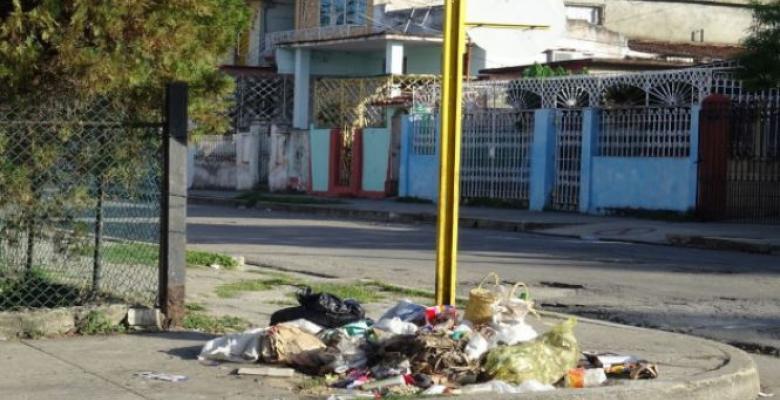Trash on the Ground: What Our Streets Say About Us
especiales

A piece of paper on the ground may seem insignificant. A small gesture, almost imperceptible, amid the rush of city life. But when that gesture multiplies, when it becomes a habit, when it is normalized, larger difficulties follow.
It is not only a matter of aesthetics. Although a clean street does convey order, respect, and even dignity, the issue goes further. Throwing trash on the ground, whether paper, wrappers, receipts, napkins, or empty cans, is an attack on our shared environment. It becomes a daily act of aggression against the common sphere, the physical and symbolic space we all inhabit, which reflects the level of care we are capable of exercising.
This phenomenon often combines individual awareness with objective factors. In Cuba, garbage bins and containers are scarce in many areas or insufficient for the waste generated by communities. Collection services are inconsistent, and environmental signage is inadequate. In recent years, the economic crisis has further limited material and logistical resources to maintain proper infrastructure.
Thus, the act of throwing trash on the ground can be conditioned by the lack of options, and it is common to hear reasoning such as “I throw it on the ground because there is nowhere else to put it.” The pace of life also plays a role. Rushing and overloaded routines can cause disconnection from the surroundings, leading some to discard waste in inappropriate places without much thought, as if simply removing a burden. Others do it knowing it is wrong but relying on the idea that “someone will pick it up,” turning that abstract figure, the street sweeper, the sanitation worker, or the conscientious neighbor, into the scapegoat for others’ negligence.
But what prevents us from holding onto that pizza box, that beer can, that cookie wrapper, until we find a bin or, at worst, reach our destination? What keeps the gesture from changing? It is not only about infrastructure, but also about culture, education, and civic responsibility. The right attitude comes from understanding that public space is not no man’s land but everyone’s land, and each discarded item is a renunciation of that principle.
Over the years, there have been campaigns, posters, and community or environmental projects. Yet they often fail to leave a lasting impact. In many cases, they are insufficient to counteract a problem that appears to be on the rise. Perhaps some campaigns appeal to duty without effectively connecting with emotion. Perhaps signs and warnings focus only on rules and penalties, not on fostering awareness. Perhaps some initiatives achieve favorable results, but only within limited contexts.
While we wait for the improvement of material conditions, we must cultivate something that costs less and is worth more: awareness. There is no need to add more waste to the already troubling state of urban sanitation. The cleanliness of our streets does not begin with the street sweeper but with the simple decision to hold onto a piece of paper.
Dropping papers, wrappers, receipts, napkins, and cans on the ground reflects a culture that has yet to fully embrace the notion that public space belongs to us all and therefore commits us all. Every careless act, whether due to haste, habit, or lack of options, reveals fractures in collective responsibility. Until we understand that the street, the park, and the sidewalk are also home, we will continue throwing without looking back, expecting someone else to pick up what we leave behind. But change will not come by decree or by signs. It will come when respect for the common good becomes habit, when the ground ceases to be a casual dumping place and becomes shared territory.
Translated by Sergio A. Paneque / CubaSí Translation Staff













Add new comment